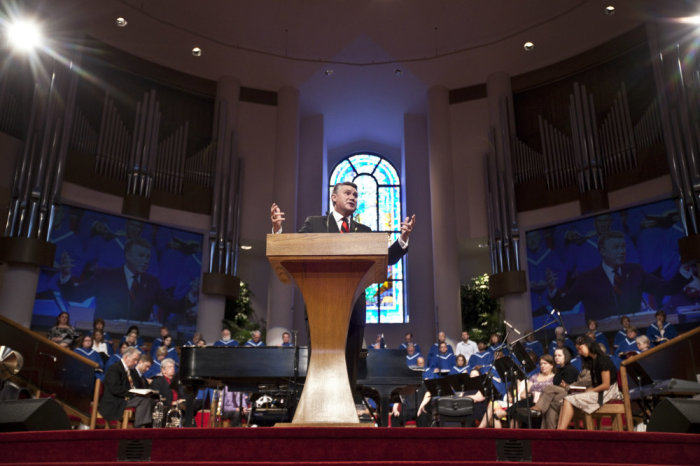Evangelicals Most in Favor of Letting Pastors Preach Politics From Pulpit: Poll

A new survey shows a substantial number of evangelicals favor scrapping the rule that forbids religious organizations and other tax-exempt entities from participating directly in politics, while others think the move might damage the Church's witness.
In a Feb. 10 Morning Consult/Politico poll, 47 percent of evangelicals said they support allowing religious groups to engage in political activity, whereas 34 percent do not. By contrast, 54 percent of Catholics and 69 percent of Jews oppose such participation by religious groups.
The survey also shows that 40 percent of evangelical voters believe that churches should be permitted to endorse political candidates, a higher figure than all other religious groups polled, while 41 percent said such endorsements should not be allowed.
Before the election and most recently at the National Prayer Breakfast, President Trump repeatedly promised to do away with the Johnson Amendment, a provision in the U.S. tax code that restricts nonprofit groups with a 501(c)3 status from endorsing or opposing political candidates.

But Chelsen Vicari, director of the Evangelical program at the Washington-based Institute on Religion and Democracy, expressed her reservations about getting rid of the amendment.
"I don't want to ignore the real friction between pastors and bureaucrats or secular organizations who might hoist the Johnson Amendment to intimidate churches," she told The Christian Post Tuesday. "But I worry this debate is a distraction from the pressing threats to religious liberty happening abroad, as well as at home. Because what exactly will eliminating the Johnson Amendment gain for the Church? I don't want my pastor or church endorsing political candidates and furthering the politicization of American Christianity."
Vicari, who is also the author of Distortion: How The New Christian Left is Twisting the Gospel and Damaging the Faith, acknowledged that while Christians may indeed have a calling to work in politics, increased partisanship from the pulpit will likely widen an already deep cultural divide and ultimately render the Church ineffective in its mission.
"The Church is called to proclaim the Gospel, aid the needy, and to offer itself as a conscience for society on issues of morality, justice, and mercy," she commented. "History has already taught us that exchanging the Gospel for political zeal partly led to the downfall of the once predominant mainline Protestant establishment in America. This should be a warning to evangelicals."
The Alliance Defending Freedom, a Christian legal group that defends religious liberty, says repealing the Johnson Amendment is a necessary and good move, noting on its "Pulpit Freedom movement" website that "almost the first 200 years in America, pastors spoke freely and boldly from their pulpit about the issues of the day, including candidates running for office. But in 1954, the passage of one piece of legislation effectively overturned this freedom: The Johnson Amendment," named after then Senator Lyndon B. Johnson.
CP reached out to ADF to explore this further but calls were not returned by press time.
While a popular talking point on the campaign trail, actually doing away with the Johnson Amendment will be a tougher sell, some believe, in that it troubles campaign finance transparency advocates concerned about an even greater flow of money into politics from nonprofit organizations.
Earlier this month, House Majority Whip Steve Scalise and Sen. James Lankford of Oklahoma introduced the Free Speech Fairness Act in the House and Senate. The legislation aims to amend the Johnson Amendment to allow churches and pastors to speak and advocate politically from the pulpit without fear of their tax-exempt status being revoked by the IRS.
Around the same time, President Donald Trump vowed at the National Prayer Breakfast to "destroy" the Johnson Amendment.
"It was the great Thomas Jefferson who said, 'The God who gave us life, gave us liberty.' Jefferson asked, 'Can the liberties of a nation be secure when we have removed a conviction that these liberties are the gift of God?'" Trump said in his speech.
"Among those freedoms is the right to worship according to our own beliefs. That is why I will get rid of, and totally destroy, the Johnson Amendment and allow our representatives of faith to speak freely and without fear of retribution. I will do that — remember."




























